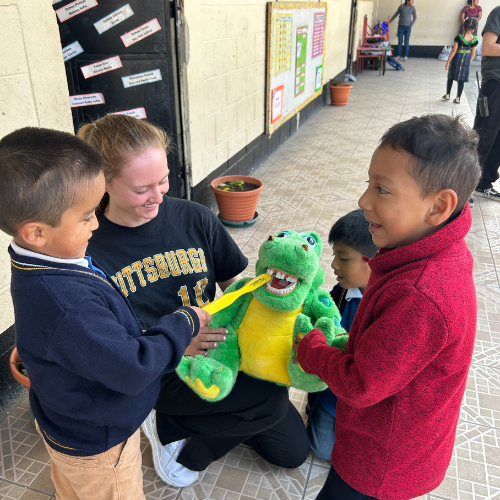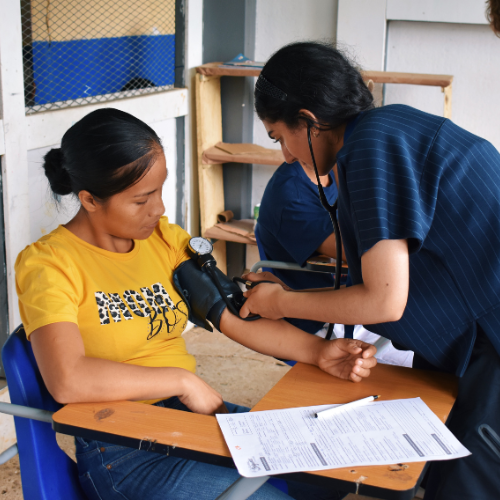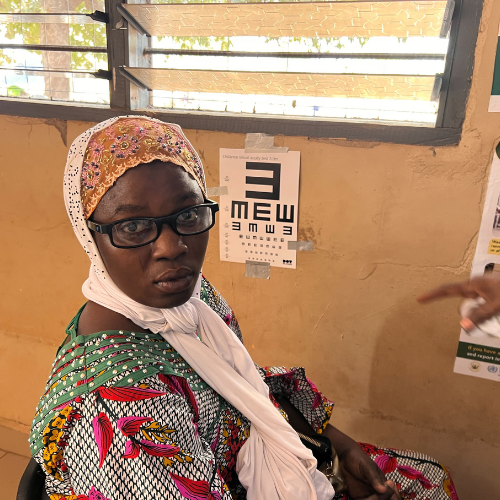As a dental assistant from rural New York, I’m accustomed to long commutes past rolling fields, winding roads, and pastures dotted with livestock. When I first arrived in Guatemala, I was struck by how familiar the view felt, even with towering volcanoes rising in the distance. Working in rural healthcare has shown me the unique challenges of providing care in underserved areas. Barriers, including lack of transportation, poor education, and poverty, limit access to treatment and preventative care for these populations. I’ve seen firsthand how rural doctors take on roles not only as healthcare providers, but also as educators and advocates, and in Guatemala, this was no different.
Why Context Matters
I quickly learned during my brigade that service is not a one-way exchange. I traveled with the University of Pittsburgh, which welcomed me and a few other students from Duquesne University. As a team, we assisted with over 500 dental procedures, including fillings and extractions. While we were able to provide relief to the community, we also walked away with lifelong lessons in empathy and holistic care. Dr. Roberto, a local doctor who has been working with Global Brigades for over five years, took the time to educate us not only about the procedures, but also the broader healthcare gaps that make attending a brigade so vital to partner communities.
He shared that over half of the population lives below the poverty line, and many families live off just $2-3 USD a day. Most Guatemalans do not have dental insurance; a root canal can cost around $150 USD out of pocket. He emphasized how important Dental Brigades are for families who might otherwise delay care, allowing small dental issues to grow into major health concerns.

A glimpse of the street outside the clinic.
How Dental Care Meets Public Health
Dr. Roberto also emphasized the lack of dental education as a major barrier in Guatemala. Hearing about his experiences in public health really highlighted the impact of early habits. Many of his young patients had cavities from an early age, often because their mothers hadn’t learned proper oral hygiene themselves. Simple practices, like brushing after nursing or avoiding sugary drinks at bedtime, are never established, showing how oral health can be shaped by environmental factors.
One of my favorite patient interactions at the extraction station was with a woman who insisted on having two of her teeth removed because of the pain she was experiencing. After screening her, Dr. Roberto determined that her teeth were still healthy and suitable for restoration. Instead of extracting them, he patiently explained the situation, educated her on the importance of preserving her teeth, and scheduled a restorative treatment for the following day. I admired how he balanced his knowledge of dentistry with genuine respect for the patient, showing how compassionate care and professional expertise can work hand in hand.

Assisting Dr. Roberto during a tooth extraction.
As part of the brigade, we led a two-day educational event called “Charla” (which means “chat” in Spanish) to help address these barriers with over 200 students at local elementary schools. We taught the students in Spanish and included some Kaqchikel, a regional indigenous Mayan language we practiced after the clinic each evening. Using a puppet and a toothbrush, we demonstrated proper oral hygiene techniques and distributed toothbrushes and toothpaste to help the children build healthy habits at home.
After Charla, the doctors applied fluoride to the students. I remember examining the teeth of a patient with early childhood cavities, and I was shocked to see the severity of oral health at such a young age. The roughness under my glove from her demineralized enamel was a tangible reminder of how crucial it is to educate young children on preventive care.

Providing oral hygiene instruction to students in the community.
Cultural Immersion in Guatemala
Beyond my time with the mobile clinic, I appreciate the cultural richness of Guatemala. We observed the deep respect for motherhood, celebrated through Día de la Madre, and saw this reflected in the way families cared for one another in the clinic. We admired the intricately woven trajes (traditional outfits) worn by the indigenous women in celebration of their Mayan heritage. Patients also adorned their teeth with gems, silver, or gold, a tradition that traces back to ancient Mayan traditions of inlaying jade as a symbol of status, and today it continues as a cosmetic tradition.
During downtime, we hiked through the breathtaking landscape, sampled snacks from the local market, and even stumbled upon a lively marimba concert. As the music played, children ran up to us to practice their English, introducing themselves and sharing small toys, reminding me that relationships can form through simple exchanges, even across language barriers.

Women filled the streets with large bouquets to celebrate Día de la Madre. The woman in the center wears a traditional traje and has silver dental adornments.
What’s Next for Me
Back in the U.S., I frequently reflect on my experience with Global Brigades in Guatemala. The lessons I learned there about empathy, holistic care, and the importance of understanding the communities we serve have stayed with me. This year, I was elected Business Manager for the University of Pittsburgh’s chapter, and as our club prepares to return to Panama, I hope to carry these lessons forward. I want to approach the upcoming brigade not only as an opportunity to provide care, but also as a chance to listen, learn, and engage with the culture and people we meet, just as I did in Guatemala.
I encourage anyone participating in global service to embrace the same mindset, approach each community with humility, curiosity, and a willingness to be transformed as much as you hope to make an impact
Want to join me on Brigade? Get involved in a Dental Brigade
Find my Chapter
Learn more about Dental Brigades
Join the movement!





-1.png)